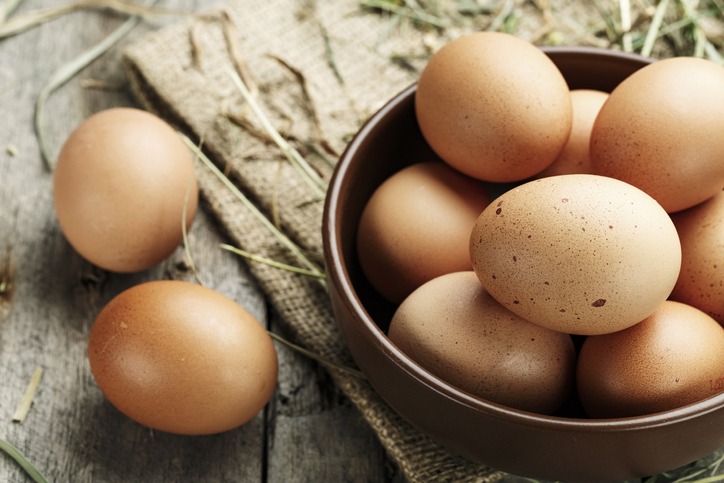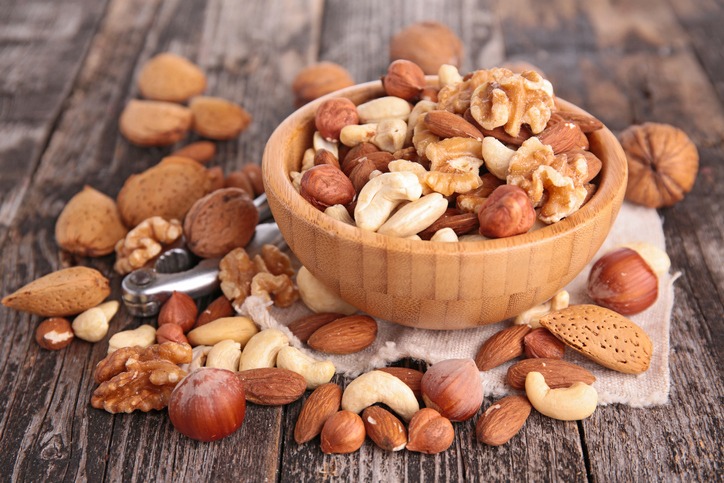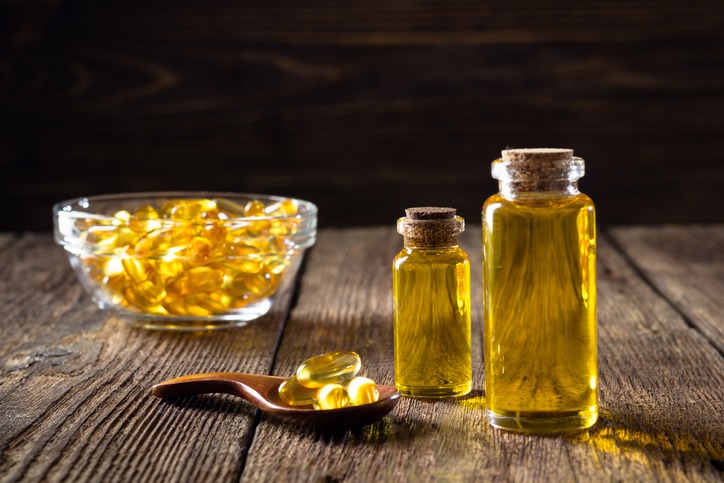What you put in your body during pregnancy goes to your unborn baby as well. Since he’s still relying on you for nourishment, you need to be careful with what you eat and drink.
Since you’re eating for two, your regular diet may not be enough, but this doesn’t necessarily mean you have to eat everything and anything. The key is to understand the needs of your unborn child as well as your own during this crucial time.
To help you out, experts in pregnancy and foetal medicine offer this article on the different foods you need (and don’t need) in your diet.
The Pregnancy Diet: 6 Best Foods for Baby and Mommy
When you’re pregnant, you need to make sure that you consume enough food containing nutrients you and your baby needs. These include:
1. Yoghurt
Pregnant women need as much protein and calcium as they can get to meet the needs of their little one as well as their own.
Dairy products have mostly the same nutrient values, but yoghurt offers more. Aside from protein that gives you energy and serves as building blocks of tissues, it also has probiotics or good bacteria that aid in digestion.
So, if you’re looking for something cold and rich with a good amount of protein and calcium and offer digestive aid, consider having a yoghurt smoothie.
On top of that, your child needs a lot of calcium because his bones and teeth are still forming. So, if you don’t consume enough of this nutrient, your body will have to take it from your bones to support your baby’s growth.
2. Sweet Potatoes
Aside from being a delicious snack that can be cooked in many different ways, sweet potatoes are also excellent sources of beta carotene. This plant compound is essential because, when consumed, it transforms into vitamin A, which is vital to your child’s development.
Although you can also get vitamin A from organ meats, these animal-based sources may cause toxicity when consumed in high amounts.
The good news is that sweet potatoes contain enough beta carotene and even have fibre to boot. Fibre is essential for everyone as it keeps you feeling full much longer and can reduce spikes in your blood sugar. It also aids in digestion, which can be really helpful when you experience pregnancy constipation.
3. Legumes
Peas, beans, chickpeas, lentils, soybeans, and peanuts all belong to a food family called legumes.
Legumes are excellent plant-based sources of several nutrients your body needs during pregnancy, including:
- Fibre – aids in digestion and helps relieve constipation during pregnancy
- Iron – ensures healthy red blood cells
- Protein – provides energy and serves as the building block for tissues
- Calcium – helps build your baby’s teeth and bones and support bone density during the pregnancy
Besides these, legumes can also provide you with folate, one of the most important B vitamins during pregnancy. Also called vitamin B9, folate is vital during the first trimester (or even before).
Experts recommend at least 600 micrograms of folate daily, which might be a bit difficult to complete from foods alone. Combining legumes with supplementation recommended by your doctor, this is achievable.
Some varieties of legumes also contain potassium and magnesium, so don’t do away with these powerful snacks.
4. Eggs
If you’re in the mood for something filling, savoury, and healthy at the same time, eggs are your best choice. Considered the “ultimate health food,” eggs contain at least a small amount of just about every nutrient you need during pregnancy.
In fact, one large egg contains high-quality protein, fat, and lots of vitamins and minerals. You get all that with just 80 calories, so you won’t have to worry about gaining too much weight.
Plus, yolks are also a great source of choline that aids your child’s brain development and prevents developmental abnormalities in the central nervous system. A single egg has around 147 milligrams of choline. This means you’ll only need at least three whole eggs to meet the daily recommended dose of 450 milligrams.
5. Broccoli and dark-green, leafy vegetables
Generally, you need to fill up on vegetables regardless if you’re pregnant or not. But if you are, you’ll want to eat more broccoli and dark leafy greens like spinach and kale to supply enough nutrients for your body and the growing baby in your belly.
These vegetables contain lots of fibre (the benefits of which have been repeatedly mentioned before), as well as vitamins C, K, and A. They are also a rich source of folate, iron, calcium, and potassium. Plus, veggies are known to reduce the chances of low birth weight.
6. Berries
Berries are examples of other superfoods you should eat more of during pregnancy. As tiny as they may be, berries contain lots of water, vitamin C, fibre, antioxidants, and healthy carbohydrates. Some berries also have a low glycaemic index value which means they wouldn’t cause a major increase in your blood sugar.
The best part is that berries are easy to eat. So, stock up on strawberries, blueberries, goji berries, raspberries, and acai berries when you’re expecting.
7. Dried Fruit
Dried fruit is considered as a great source of vitamins and minerals that you need during your pregnancy. Dried fruit is rich in fibre, calcium, copper, protein, and many others. They essentially contain all the nutrients as fruits but without the water.
A single piece of dried fruit can help you achieve a significant portion of the recommend intake of nutrients such as iron, potassium, and magnesium.
For example, almonds pack a massive amount of nutrients including fibre, protein, and vitamin E. Another example would be dates, they are also high in fibre, potassium, iron, and other compounds.
However, it is important to remember that many nuts contain natural sugars that may not be suitable for you during pregnancy. So, try to avoid such nuts and especially candied ones.
You should also remember that you consume the dried fruit in moderation and not have more than one serving.
8. Avocados
Avocados are packed with healthy nutrients that will make them a great choice of a food to have during pregnancy.
Firstly, avocados are full of fibre which helps with healthy bowel movements and reduces risk of gestational diabetes.
Secondly, they are great source of healthy fat which increases the feeling of being satisfied, and moreover, they help improving cardiovascular health, maintain sugar levels, and impact sleep quality positively.
Thirdly, avocados deliver a significant portion of recommended intake of folate, an essential nutrient in fetal development.
All in all, avocados are another example of a great food item to have during pregnancy because of the amount of nutrients it has that are required when one is going through pregnancy.
9. Fish Liver Oil
Fish Liver Oil, as the name implies, is made up of oily liver of fish usually cod. Fish liver oil contains omega-3 fatty acids that play an important role in the development of the fetal’s brain and eyes. It also helps and avoids preterm pregnancy.
Besides this, fish liver oil is also packed with Vitamin D which is a common deficiency among people and can supplement the vitamin D requirements. It is also a perfect alternative for those who do not have seafood.
10. Water
This is perhaps the most expected one out of them all but also the most important. We all know that we need to have sufficient water to stay hydrant, this is even more important for pregnant ladies as the baby, and you need to remain hydrated.
Apart from staying hydrated, it also helps with constipation and reduces the risk of urinary tract infection (UTI) which is a very common occurrence during pregnancies.
Foods to Avoid
Besides knowing what you should be eating, you must also be aware of the different foods and drinks you should steer clear of while pregnant.
Alcohol
This is one of the drinks to avoid at all costs.
Alcohol in your blood can pass to your unborn child via the umbilical cord. This is why heavy drinking causes conditions called foetal alcohol spectrum disorders (FASD).
FASD not only affects your child’s physical development but also wreaks havoc on his learning and behaviour as well.
Seafood high in mercury
The Academy of Nutrition and Dietetics advise pregnant women to avoid certain kinds of seafood during pregnancy because of the high levels of methyl mercury they contain. These include:
- Swordfish
- Shark
- King mackerel
- Marlin
- Orange roughy
- Tilefish
The toxic chemical can be passed on to the baby through the placenta and may harm your baby’s developing brain, nervous system, and kidneys.
Raw meat
The Toxoplasma gondii parasite that causes Toxoplasmosis can be found in raw or undercooked foods, like:
- Poultry
- Meat
- Fish (sashimi, sushi, ceviches, and carpaccio)
- Shellfish (clams, oysters, mussels, and scallops)
This infection can be passed on from a pregnant mother to her baby, leaving the little one susceptible to problems like mental disability and blindness later in life. So be sure to avoid eating these raw foods when you’re expecting.
Caffeine
We know that having a cup of coffee, tea, or a soda may be an essential part of your day and it is the same case for many around the world.
However, many professional organizations such as the American College of Obstetricians and Gynaecologists (ACOG) advise that caffeine intake should be less than 200 milligrams (mg) per day for those who are pregnant.
This is because caffeine is easily absorbed and passed into the placenta, and since babies do not have the enzymes to process the caffeine, it can build up in excessive amounts.
High caffeine intake has shown that it can impact adversely fetal growth and increase the chances of low birth weight at delivery which can drive up the infant mortality rate.
So, make sure to limit your caffeine exposure and limit it up to 200 mg per day at max to stay on the safe side for you and your baby.
Do What’s Best for Your Baby
What you consume during pregnancy will significantly affect your unborn child’s health, so make sure that you only eat what’s best for you both. If you’re unsure, consult your OB-GYN or providers of maternity services first.
Author bio
Vanessa Batten is a marketing and communications specialist with 10 years’ experience in the UAE healthcare industry and is the Senior Communications Officer at Mediclinic Middle East. Operating seven hospitals and 20 outpatient clinics with more than 900 inpatient beds in the UAE, Mediclinic is focused on providing specialist, multi-disciplinary services across the continuum of care and is regarded as the most respected and trusted provider of private healthcare services in the UAE.





